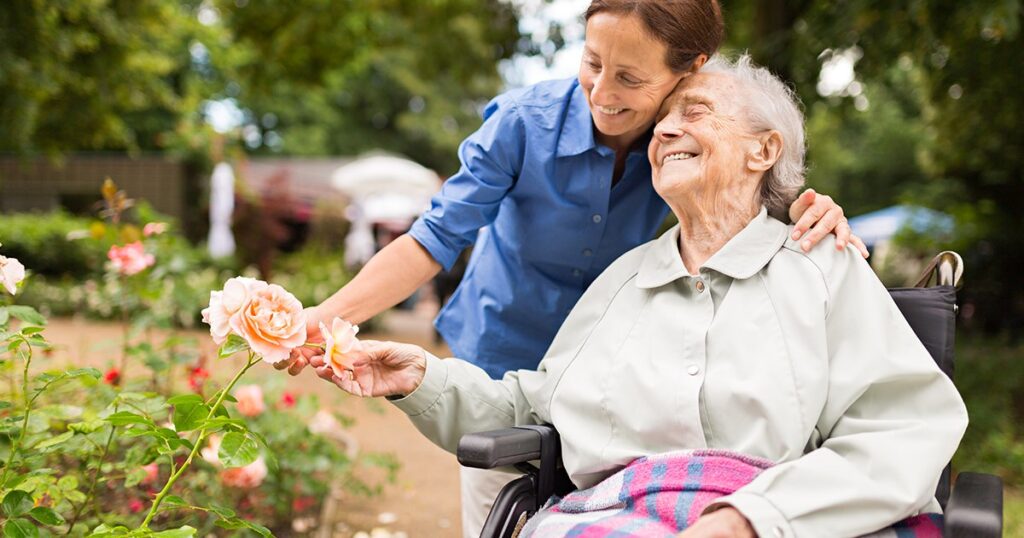It can be difficult to care for someone you love who has a mental or physical disability. However, thousands of Americans are helping their loved ones live a normal life. Family members rely on friends, family, neighbors, and partners who are younger or more able to help older family members who can no longer function independently. These individuals act as caregivers for their loved ones, donating their time and energy. Let’s take a look at what a family caregiver does and who they are.
Who are the family caregivers?
A family caregiver can provide a variety of support to an adult, a child or an older person with cognitive, mental, or physical limitations. Family caregivers have a close relationship with the recipient (recipient). This could be a neighbor, a partner, a family member or even a friend. They may live with the person they are helping but may provide primary or secondary care.
What’s the difference between a family caregiver or a caregiver?
Family caregivers have a close relationship with the recipient. Their involvement is determined more by their relationship with the recipient than any financial compensation. Family caregivers are often free to offer their assistance and they rarely receive compensation for their services. They are often not trained in providing care for someone with disabilities.
What role does a family caregiver play?
The role of a family caregiver can be described in terms both of duration and intensity. However, they are highly variable and vary across caregiving. A caregiver’s general role is to:
* Offer companionship to the recipient in and outside of the home.
* Assist the recipient with personal care such as dressing, toilet use, hygiene.
* Move the recipient around and help them get in and out of bed.
* Assist with prescription use, administer medications, and remind about appointments.
* Report any changes in the health status of the recipient.
* To ensure the safety and well-being of the recipient.
Family caregivers may also be able to assist with:
* Housekeeping, cooking meals and running errands on behalf of the recipient.
* Take the recipient to and fro various activities.
* To be a supporter and guardian for matters related to personal and/or emotional health.
A family caregiver often takes care of complex medical and therapeutic tasks for the recipient when they are seriously ill. They also handle medical equipment such as:
* Catheters
* Drainage tubes
* Feeding tubes
* Tracheostomies
Family caregivers are expected to communicate with other people responsible for the recipient’s care. They could include the recipient’s doctor assistant, nurse, social worker or pharmacist. They should also be familiar with the recipient’s language:
* Your health history
* Social support
*Medications
* Past diagnoses
* Previous surgeries and treatments (if any).
Planning and logistics are important aspects of caregivers’ roles.
Do you want to start a Montana home-based healthcare business?
Montana is known for its natural beauty. Property taxes are extremely low. You will find plenty of open spaces. Montana is known for being one of the most sparsely populated states. Montana offers the most basic elements of living. There are many local amenities and excellent healthcare. The economy is thriving.
Montana caregiver insurance is worth looking into. Knowing what type of insurance a home health aide needs can help you protect your career as well as your finances.
As a family caregiver, you can get paid.
Many states offer programs that allow family members to provide nonmedical support to their loved ones. These programs require family caregivers meet certain criteria. California’s Paid Family Leave Act, for example, allows family members to take time off to care and support their loved ones while still receiving a certain percentage. Veteran Directed care is another program that provides care at home for veterans. It is comparable to the care in a nursing facility. Veterans can choose to receive home care and pay their family members or friends for it.
Caregivers often work with vulnerable people, so caregiver insurance can be a great option. Accidents can only be described as an accident. Even a minor accident can lead to a costly lawsuit. You can have peace of mind knowing that your loved one is covered by caregiver insurance.
Intervention in caregiving
There are two types available for caregiver intervention. The first is a respite program that helps caregivers reduce the care they provide. It also provides training and support to help caregivers become more competent. The second is psychoeducational/psychotherapeutic intervention to improve the family caregiver’s well-being and coping skills.
Conclusion
You will need to perform multiple roles as a caregiver. Your job may become more difficult as the recipient gets older. You may find that caregiving is disruptive to your daily life and can cause you to lose your psychological and physical health. It is not an easy job, but it can be rewarding because you are caring for someone you care about. You can give your loved ones all the care and love they deserve with the right insurance.


